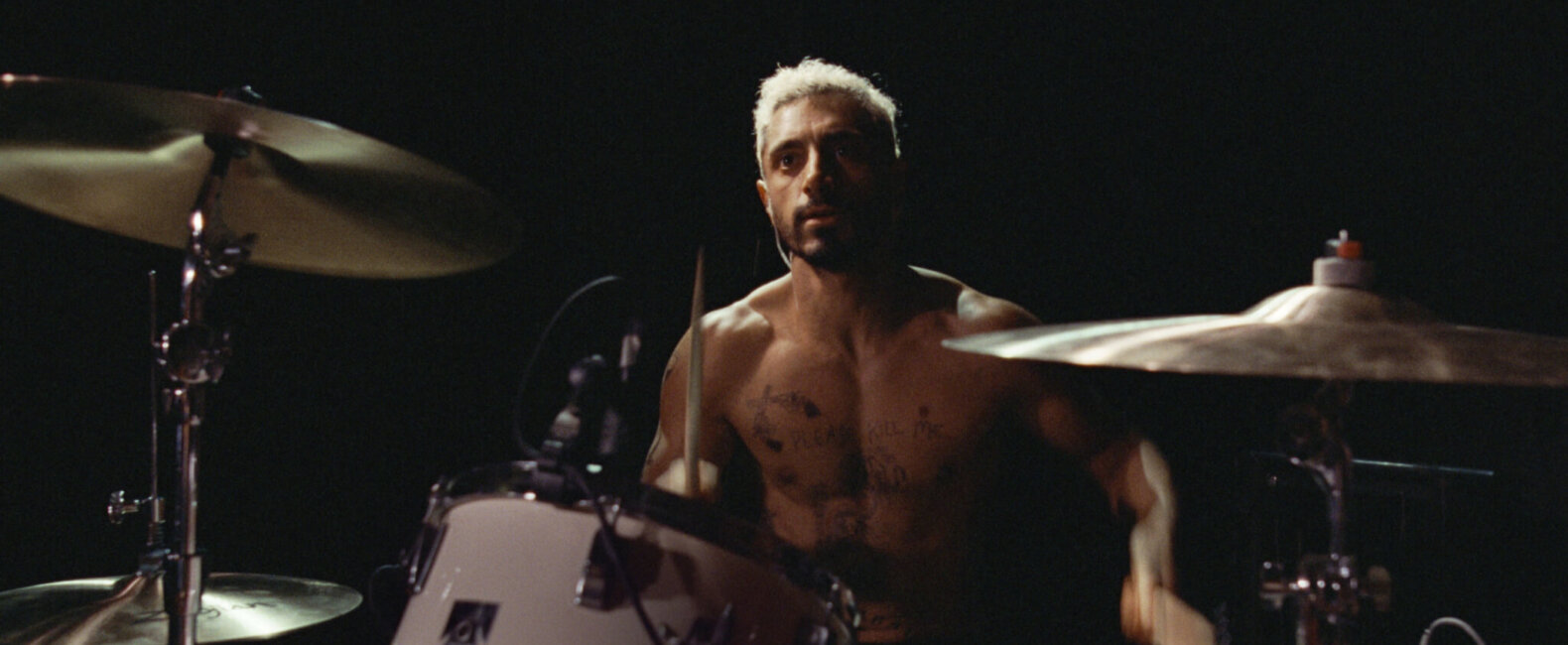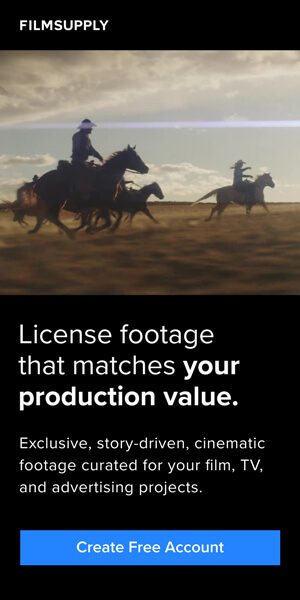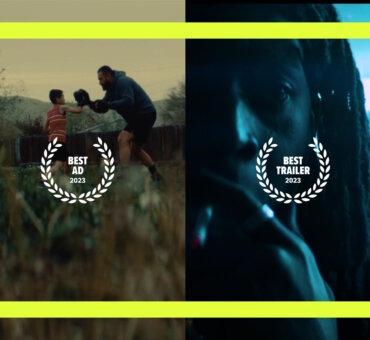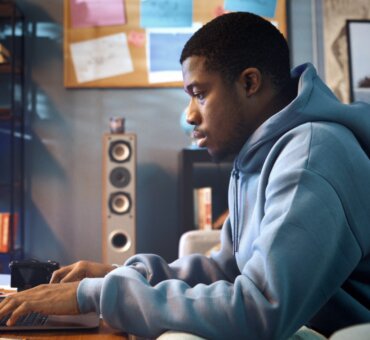“I don’t do nine-to-five.” Mikkel declared to us. “I’m not the usual editor. If I sign on, it becomes ‘The Project’. Every day, even weekends. That gives me the time to try different things, peeling away until I find the balance and simplicity that lets us talk to the audience.”
Mikkel E. G. Nielsen is as dedicated to the project as he is his craft. Having already amassed significant credits with Madame Bovary and Beasts of No Nation, Nielsen was recently awarded a BAFTA for his work on Sound of Metal, as well as winning a Critic’s Choice award for best editing. And to top it all off, the film garnered six 2021 Academy Award nominations, with Mikkel winning Best Achievement in Film Editing.
Originating as a documentary, Sound of Metal’s journey to dramatic feature was in some ways as arduous as the path taken by its rock drummer protagonist as he learns to accept his rapid-onset condition of deafness.
The documentary version was helmed by director Derek Cianfrance and left largely incomplete. But its original editor, Darius Marder, remained consumed by the subject matter. After taking on the film’s co-writing and direction, Darius looked for collaborators to help him achieve his new vision for the film, and Mikkel succeeded him as the film’s editor.
Here we talk with Mikkel about his approach to editing, the art of noise, and the sound of silence.
Filmsupply: What was it like working with a director who was himself an editor?
Nielsen: I’ve previously worked with directors who were editors. Darius had this approach for interviewing editors where he would say, “I want to do some of the editing myself.” I had read the script, seen some footage, and really liked it. But I work in a different way. I wanted to challenge him, so I said, “That sounds great. Would you like to hear how it will be if you edit it with me?” He was very surprised I said that. It turns out he had told himself that the first time anyone challenged him about how it was going to be, he would go with that person.
He was so into the material and wrote thousands of pages explaining everything, whereas I went into the project fresh, knowing as little as possible. I asked him to give me all the material and let me put together a first assembly from scratch.
The first assembly landed at 3 hours and 40 minutes. I included many scenes, even though they weren’t all the way he intended. But it was about making the best choice for the movie. He saw interesting ideas, and from then on it was him pushing me. We were both trying to raise the bar all the time, and peel these layers off.
What was it like establishing the editing grammar for this film, especially for moments when we’re ‘with’ Ruben [Riz Ahmed], seeing and hearing things from his changing perspective?
The five minutes after he starts losing his hearing, we create that language for going in and out with our main character and explaining our use of sound. After you’re in his head, you can walk it around, cutting to a wide shot and seeing things from a normal perspective. I treated the scenes with that balance of internal and external. I also learned to never know more than Ruben himself saw. Finding that language was a joy, and finding the structure and the arc of the whole film gave us many rules to apply in this strange contract with the audience.
Tell us more about developing the story and characters.
Sound is so physical and emotional. The challenging part was establishing the whole circle, the arc of the story. Opening with the concert was actually a late development in editing. It created a balance between the two main characters: that she [Lou, played by Olivia Cooke] is the lead singer and Ruben is her drummer. Then, a hard cut to the Airstream and you see them as a couple and find out about their relationship. He makes breakfast and drives the bus. You get details of smoothie-making and coffee dripping and everyday life needed to awaken senses so eyes and ears will pay attention. Then, when he loses his hearing, you see the coffee dripping again. But now it’s without sound.
Did you make a conscious effort to differentiate the storytelling style once Ruben’s deafness starts to define him?
We worked the whole film into a three-act structure. The first 45 minutes were about sound. Then, it was finding himself while at the deaf community. Then, the ‘sound of metal’ when he activates the cochlear. Each act was like a different kind of film.
The first part is almost like a horror movie, where you cut in and out, awakening the audience’s senses. When he goes to the pharmacist, it’s all muffled, and you can’t tell what is being said. You feel it with the main character. The section in the deaf community was almost like a documentary. We stay on shots longer, to the point that when Ruben hears the kid drumming on that slide, he awakens to that sense of drumming again just from his feeling. The metal section is a bit more like I would treat a European film, staying longer on the shots and editing less in the dialog scenes with Lou’s dad. After I found the structure, I began the character work, and the external/internal moments. I also worked on the film as a silent movie, to understand just how much information we needed.
Darius felt from the start that we should be close-captioned, so both a deaf and hearing person would have the same feeling about the film. I thought that was a beautiful way to treat the material.
How did you approach music in the film so it didn’t compete with the drama of hearing as Ruben hears?
I treated the film almost like we didn’t have music, outside of the audio source in the footage. We used ambience more as music than the actual score. There’s the concert, him drumming in the Airstream, the piano scene, and then when Lou and her father sing near the end. That’s it.
Film composer James Horner says you can’t do total silence in a movie, because then the audience just becomes more aware of the air conditioning.
Right. Darius did a lot of research, and worked with sound designer Nicolas Becker on that. Nicolas has a small sound to represent silence. We used atmosphere in these scenes, so there is more emphasis on natural sounds. We wanted it to feel extremely organic early on, then become extremely digital when he gets the cochlear.
After he gets the ear surgery, there’s a sustained long shot of an aircraft moving across the sky that silently seems to say we’re going on something of a departure – and then we next see him in Europe looking for Lou.
The rhythm was the same, but it was important to feel different and foreign as Ruben arrives. The first sound you hear after the plane is a noisy ambulance. Immediately, this is not America. We needed to find those small, easy ways to tell you where we were and focus on the character. When he sees Lou sing with her dad, there are two layers for their voices, and when her high tone adds to her dad’s, I find it quite moving. Almost like feeling goosebumps. But when you get Ruben’s perspective taking this in, there is an extreme digital sound coming in.
When the couple realizes it won’t work between them, Ruben is alone outside. There seems to be a moment of clarity once he lets things go silent again.
The end mirrors the opening. He’s sitting on a bench, looking at a church and hearing bells, looking at two kids fighting over a skateboard. When he takes his hearing device off, we see the church without sound. We see the kids, without sound, and they’re gentle with one another now. You get a feeling very opposite from what you just had: a new language without sound.
How do you feel about the film’s reception?
Darius was open to killing his darlings, because we had to stick to the road once we set off. Now the film is doing what we hoped. We’re very grateful for the way people have taken in the film. Every department on the film made this a pleasure to work on. I’m deeply grateful for being invited on this journey, and I absolutely loved every second of the whole process.Read about the incredible editing work behind the oscar-winning film Ford v. Ferrari.






